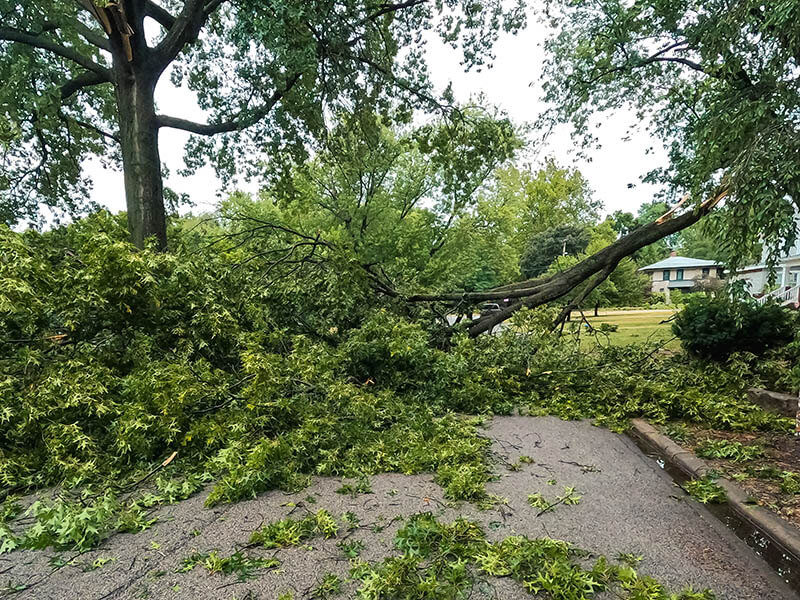
In Donati, in March 2021, the claimant was at work trimming trees when he was allegedly injured by a falling tree limb. The claimant, who was sitting on the ground after the limb fell, complained of pain in his neck. At the hospital, the claimant reported numbness and tingling in his bilateral upper extremities, with pain in his neck, upper back, and left hip. An MRI of his cervical spine the next day showed abnormalities in his spine that were related to a dorsal arachnoid web. Respondents denied the claim and it proceeded to hearing.
At the hearing, the claimant testified that he was bent forward at the waist picking up cuttings when the tree limb fell on him, and it hit him between the shoulders, neck, and head. A coworker testified that it did not make sense that the claimant was bent forward prior to impact, because he would have fallen forward not backward. (He was found sitting down). The Employer testified that the claimant previously complained that his arms and shoulders hurt.
Records proved the claimant sought treatment for a degenerative joint disease in his shoulders. Respondents’ doctor testified that an arachnoid web is typically of an unknown origin, not trauma. The claimant did not have any bruising or abrasions at the location where he claimed the tree had hit him at the ER either. The Respondents’ doctor opined that the claimant’s spinal injury was not caused by this trauma—in other words the claimed mechanism of injury did not match the MRI results. The “web” did not have enough time from injury to MRI to form and thicken. The claimant’s subjective complaints did not match the objective findings.
The Industrial Claim Appeals Office (the Panel) agreed with the ALJ and found the ALJ did not abuse her discretion. Specifically, it concluded that the coworker's testimony (1) was appropriately characterized as lay opinion testimony and (2) was based on his personal knowledge and did not violate CRE 602. Next, addressing the claimant's argument that substantial evidence refuted the ALJ's finding that the limb did not hit him, the Panel noted that while other interpretations of the evidence and credibility findings were possible, they do not afford the claimant relief because it must defer to the ALJ's credibility findings and is not at liberty to reweigh the evidence. Thus, because substantial evidence supported the ALJ's order, the Panel concluded it could not disturb it on review due to the rules involved with standards of review by the Panel. An ALJ has wide discretion in determining the path of a hearing and the make evidentiary rulings. § 8-43-207(1)(c), C.R.S. 2022. Therefore, the Panel affirmed the ALJ’s denial and dismissal of the claim.
Donati v. Indus. Claim Appeals Office, 2023 WL 1861739, No. 22CA0115 (Colo. App. Feb. 9, 2023).
Want to know more? Contact Shelby Scheider at sscheider@pollartmiller.com or 877-259-5693.